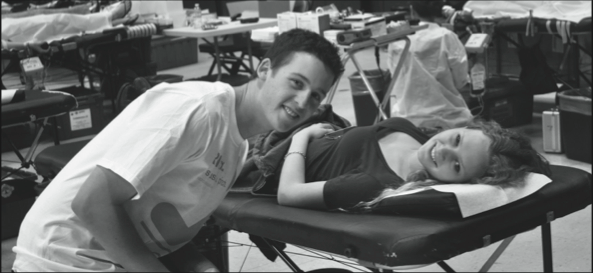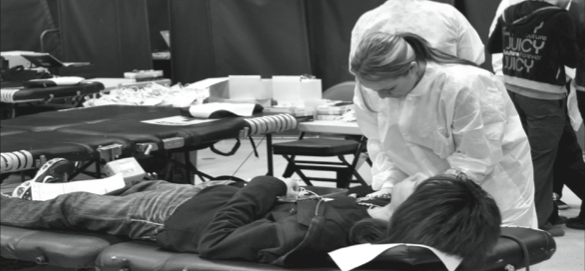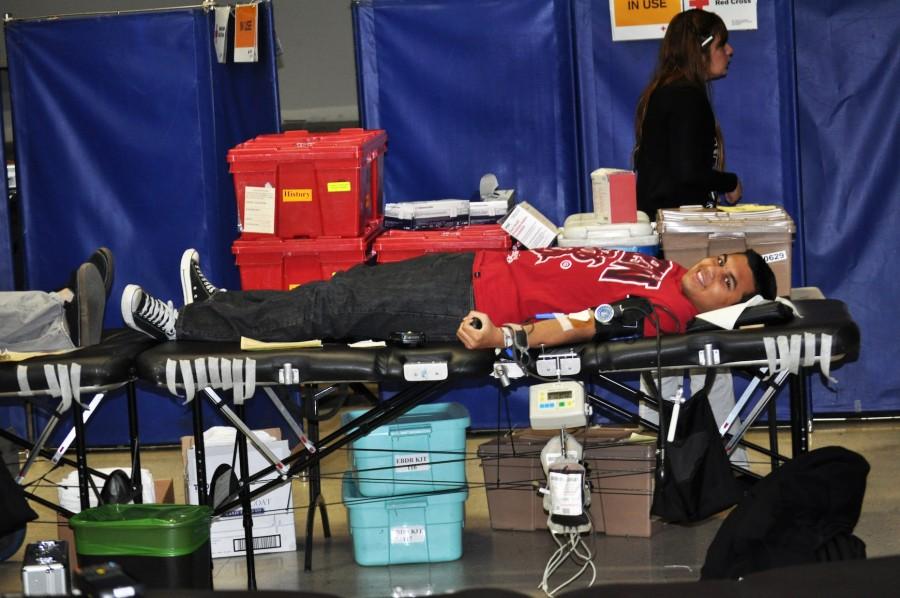View pictures from this year’s blood drive HERE
In a time where gays and lesbians are gaining rights to marriage, they still face seemingly simplistic societal restrictions, such as the donation of blood. The task of donating blood in order to help others must not discriminate against any individual based on his or her personal preferences.
The Food and Drug Administration has banned gays from donating blood since 1983 in an effort to keep the blood supply safe from disease. A suggestion was made to allow men to donate blood if they prove, through medical examinations, that they have not contracted a sexually transmitted disease. In 2010, another proposition was made to change the ban and permit low-risk gay men who are in a serious relationship to donate blood. The small steps that the FDA deems so monumental are pointless in a generation of acceptance, and the ban must be entirely lifted, rather than “fixed” one issue at a time. The alienation of gay men by this discriminatory law cannot be mended. The law unjustly singles out gays and causes them to feel estranged based on the ignorant assumption that their blood is different than that of other groups.
“I do not think this policy is fair or justified. It is a policy rooted in the fear caused by the AIDS epidemic of the 1980s,” said Lesbian Gay Bisexual Trans-gender Questioning club vice president Michael Lewis. “I think many gay men would go out of their way to donate blood. It is really just an attempt to make the world a better place.”
According to some scientists, the primary reason behind the law is that there is a higher chance of transmitting the HIV virus from a male who has had sex with another male. However, heterosexual individuals who have had many sexual partners have been proven to have an equal chance of passing on the virus, but are not penalized in any way. According to avert.org, two thirds of female adults and adolescents in the United States who were diagnosed with HIV in 2009 were infected through heterosexual contact. Being extremely sexually active, especially in the young adolescent stages of life, increases one’s chances of contracting the virus regardless of sexual orientation.
“The top priorities of the American Red Cross are the safety of our volunteer blood donors and the ultimate recipient of the blood,” said public affairs manager of the American Red Cross Nicholas Samaniego. “We believe all potential donors should be treated with fairness, equality and respect, and that accurate donor histories and medically supported donor deferral criteria are critical to the continued safety of blood transfusion.”
The government requires the Red Cross to hold a screening process for every donor before he or she gives blood. If a person says that he or she is gay, the Red Cross is specifically prohibited from allowing this individual to donate blood, even though the organization does not necessarily support this action. However, the blood is screened for HIV before it is donated, rendering it irrelevant to prevent gays from doing their part to aid the community. There is no sound scientific justification for allowing heterosexuals, who may potentially have the disease, to donate blood, while gays are completely prohibited.
Gays are willing individuals who are being prevented from saving lives. The FDA must allow morally active citizens to participate in blood drives and contribute to society. Discrimination is ethically and unjustifiably wrong, and if nothing is done to change this law, gays will feel further alienated from society. The only thing that should be feared at a blood drive is the possibility of fainting.








